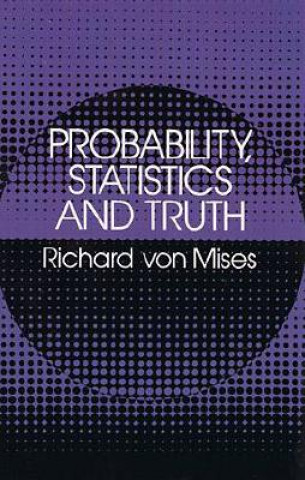
Kód: 02563452
Probability, Statistics and Truth
Autor Richard von Mises
PREFACE PREFACE TO THE THIRD GERMAN EDITION FIRST LECTURE The Definition of Probability Amendment of Popular Terminology Explanation of Words Synthetic Definitions Terminology The Concept of Work in Mechanics An Histo ... celý popis
- Jazyk:
 Angličtina
Angličtina - Vazba: Brožovaná
- Počet stran: 244
Nakladatelství: Dover Publications Inc., 2003
- Více informací o knize

Mohlo by se vám také líbit
-
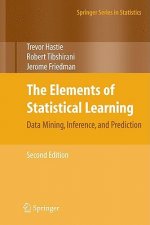
Elements of Statistical Learning
2200 Kč -

How to Lie with Statistics
302 Kč -
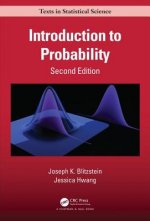
Introduction to Probability, Second Edition
2413 Kč -

Linear Algebra Done Right
1467 Kč -

Forecasting with Exponential Smoothing
4859 Kč -
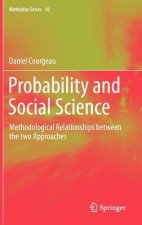
Probability and Social Science
5060 Kč -

Stargazing
302 Kč -
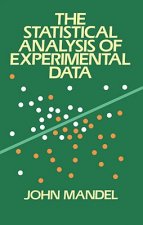
Statistical Analysis of Experimental Data
544 Kč -
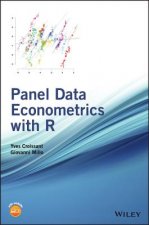
Panel Data Econometrics with R
2607 Kč -
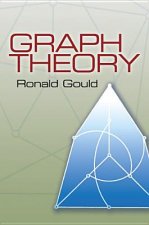
Graph Theory
466 Kč -

Managing Intermittent Demand
1665 Kč -
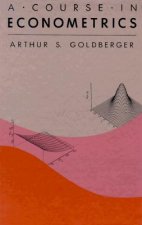
Course in Econometrics
3233 Kč -

Econometrics: Alchemy or Science?
2716 Kč -

Machine Learning with R -
1399 Kč -
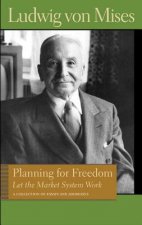
Planning for Freedom: Let the Market System Work
351 Kč -
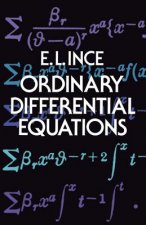
Ordinary Differential Equations
622 Kč -

Strength of Materials
616 Kč -
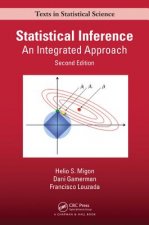
Statistical Inference
3733 Kč -
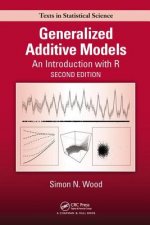
Generalized Additive Models
2895 Kč -
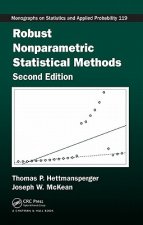
Robust Nonparametric Statistical Methods
5946 Kč -
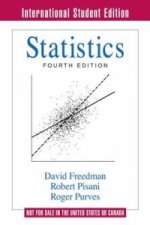
Statistics
1787 Kč -

Differential Equations and Linear Algebra
1925 Kč -

Evolution of Co-Operation
356 Kč -

The Logic Of Sports Betting
503 Kč -
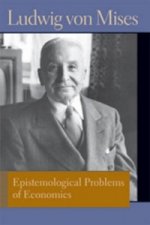
Epistemological Problems of Economics
345 Kč -

Storyfun for Starters Level 2 Student's Book with Online Activities and Home Fun Booklet 2
497 Kč -

Graffiti Cookbook
356 Kč -

The Animator's Survival Kit
993 Kč -

UNIX and Linux System Administration Handbook
1855 Kč -

A First Course in Differential Equations with Modeling Applications
9651 Kč -

Worth Dying for
276 Kč -
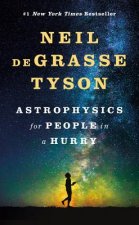
Astrophysics for People in a Hurry
404 Kč -

Intellectual Property: A Very Short Introduction
336 Kč -

Gathering of Ravens
538 Kč -

Lifespan
487 Kč -

Outsider
268 Kč -

Animal Farm
119 Kč -

GOLD EXPERIENCE B2 STUDENTS' BOOK 2º ED + INTERACT
609 Kč -

Reckless
290 Kč -

Coaching Agile Teams
1111 Kč -

Solitude
525 Kč -
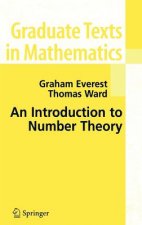
Introduction to Number Theory
2094 Kč -

Intuition Pumps and Other Tools for Thinking
356 Kč -

I Love You Rituals
342 Kč -

A Farewell to Arms
186 Kč -

Land of Stories: The Wishing Spell
223 Kč -

Freedom Evolves
302 Kč -

Johnny Got His Gun
276 Kč -

Introducing Pure Mathematics
1875 Kč -

Book of the Dead
302 Kč -

Cake Pops
498 Kč -

Magic Eye Gallery: A Showing of 88 Images
276 Kč -

Asperger Syndrome and Alcohol
718 Kč -

No Limits
276 Kč -

Shogun
378 Kč -

Tales of Mystery and Imagination
98 Kč -
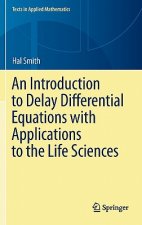
Introduction to Delay Differential Equations with Applications to the Life Sciences
2485 Kč -

Más Astuto Que El Diablo (Outwitting the Devil): El Texto Completo Original Sin Editar; El Autor de Piense Y Hágase Rico, El Libro Sobre El Éxito de M
451 Kč -

Systemy informatyczne i zarządzanie
1475 Kč -

Charles University A Historical Overview
367 Kč -

OSITO TITO. UN DIA EN LA NIEVE
240 Kč -

LeBron S.A. Sportowiec wart miliard dolarów
273 Kč -

Nocne ognie
229 Kč -

Und jetzt ihr! Basisgrammatik für Jugendliche
295 Kč -

Rodzina. Akademia mądrego dziecka. Pierwsze słowa
155 Kč -

Język angielski EW Hello Explore Zeszyt ćwiczeń dla klasy 3 szkoły podstawowej EDYCJA 2022-2024 70065
235 Kč -

Angélica Y La Güira
475 Kč -

LOS MEJORES CUENTOS HISPANOAMERICANOS
304 Kč -

Szkoła na TAK! Zeszyt kaligrafii. Edukacja wczesnoszkolna. Klasa 1
153 Kč -

Kalendarz 2024 ścienny A3 wędkarski V.6
169 Kč -

Dostatek
264 Kč -

Policjanci W boju
155 Kč -

40 dní pěšky do Jeruzaléma
319 Kč -

Przedwojenna architektura żydowska Najpiękniejsze fotografie
146 Kč -

Rodzaju żeńskiego 1 Antologia dramatów
205 Kč -

Magické bytosti Vyškrabávací obrázky
160 Kč -

Mezi řádky Rána
245 Kč -

Variació sobre un tema Schubert (m.esquerra/m.izquierda)
284 Kč -

Cien a?os de soledad
646 Kč -

Koszulka z suwakiem A5 żółta
14 Kč -

Neblázni miláčik
284 Kč -

Angielski dla zerowek Karty pracy
357 Kč -

Chemia Zbior zadan wraz z odpowiedziami Tom 2
379 Kč -

Nationalpark Triglav, Kranjska Gora, Planica, Bled 1: 35 000
267 Kč
Informovat o naskladnění knihy
Zadejte do formuláře e-mailovou adresu a jakmile knihu naskladníme, zašleme vám o tom zprávu. Pohlídáme vše za vás.
Více informací o knize Probability, Statistics and Truth
 Anotace knihy
Anotace knihy
PREFACE PREFACE TO THE THIRD GERMAN EDITION FIRST LECTURE The Definition of Probability Amendment of Popular Terminology Explanation of Words Synthetic Definitions Terminology The Concept of Work in Mechanics An Historical Interlude The Purpose of Rational Concepts The Inadequacy of Theories Limitation of Scope Unlimited Repetition The Collective The First Step towards a Definition Two Different Pairs of Dice Limiting Value of Relative Frequency The Experimental Basis of the Theory of Games The Probability of Death First the Collective-then the Probability Probability in the Gas Theory An Historical Remark Randomness Definition of Randomness: Place Selection The Principle of the Impossibility of a Gambling System Example of Randomness Summary of the Definition SECOND LECTURE The Elements of the Theory of Probability The Theory of Probability is a Science Similar to Others The Purpose of the Theory of Probability The Beginning and the End of Each Problem must be Probabilities Distribution in a Collective Probability of a Hit; Continuous Distribution Probability Density The Four Fundamental Operations First Fundamental Operation: Selection Second Fundamental Operation: Mixing Inexact Statement of the Addition Rule Uniform Distribution Summary of the Mixing Rule Third Fundamental Operation: Partition Probabilities after Partition Initial and Final Probability of an Attribute The So-called Probability of Causes Formulation of the rule of Partition Fourth Fundamental Operation: Combination A New Method of Forming Partial Sequences: Correlated Sampling Mutually Independent Collectives Derivation of the Multiplication Rule Test of Independence Combination of Dependent Collectives Example of Noncombinable Collectives Summary of the Four Fundamental Operations A Problem of Chevalier de Méré Solution of the Problem of Chevalier de Méré Discussion of the Solution Some Final Conclusions Short Review THIRD LECTURE Critical Discussion of the Foundations of Probability The Classical Definition of Probability Equally Likely Cases ... ... Do Not Always Exist A Geometrical Analogy How to Recognize Equally Likely Cases Are Equally Likely Cases of Exceptional Significance? The Subjective Conception of Probability Bertrand's Paradox The Suggested Link between the Classical and the New Definitions of Probability Summary of Objections to the Classical Definition Objections to My Theory Finite Collectives Testing Probability Statements An Objection to the First Postulate Objections to the Condition of Randomness Restricted Randomness Meaning of the Condition of Randomness Consistency of the Randomness Axiom A Problem of Terminology Objections to the Frequency Concept Theory of the Plausibility of Statements The Nihilists Restriction to One Single Initial Collective Probability as Part of the Theory of Sets Development of the Frequency Theory Summary and Conclusion FOURTH LECTURE The Laws of Large Numbers Poisson's Two Different Propositions Equally Likely Events Arithmetical Explanation Subsequent Frequency Definition The Content of Poisson's Theorem Example of a Sequence to which Poisson's Theorem does not Apply Bernoulli and non-Bernoulli Sequences Derivation of the Bernoulli-Poison Theorem Summary Inference Bayes's Problem Initial and Inferred Probability Longer Sequences of Trials Independence of the Initial Distribution The Relation of Bayes's Theorem to Poisson's Theorem The Three Propositions Generalization of the Laws of Large Numbers The Strong Law of Large Numbers The Statistical Functions The First Law of Large Numbers for Statistical Functions The Second Law of Large Numbers for Statistical Functions Closing Remarks FIFTH LECTURE Application Statistics and the Theory of Errors What is Statistics? Games of Chance and Games of Skill Marbe's Uniformity in the World' Answer to Marbe's Problem Theory of Accumulation and the Law of Series Linked Events The General Purpose of Statistics Lexis' Theory of Dispersion The Mean and the Dispersion Comparison between the Observed and the Expected Variance Lexis' Theory and the Laws of Large Numbers Normal and Nonnormal Dispersion Sex Distribution of Infants Statistics of Deaths with Supernormal Dispersion Solidarity of Cases Testing Hypotheses R. A. Fisher's Likelihood' Small Sample Theory Social and Biological Statistics Mendel's Theory of Heredity Industrial and Technological Statistics An Example of Faulty Statistics Correction Some Results Summarized Descriptive Statistics Foundations of the Theory of Errors Galton's Board Normal Curve Laplace's Law The Application of the Theory of Errors SIXTH LECTURE Statistical Problems in Physics The Second Law of Thermodynamics Determinism and Probability Chance Mechanisms Random Fluctuations Small Causes and Large Effects Kinetic Theory of Gases Order of Magnitude of 'Improbability' Criticism of the Gas Theory Brownian Motion Evolution of Phenomena in Time Probability 'After Effects' Residence Time and Its Prediction Entropy Theorem and Markoff Chains Svedberg's Experiments Radioactivity Prediction of Time Intervals Marsden's and Barratt's Experiments Recent Development in the Theory of Gases Degeneration of Gases: Electron Theory of Metals Quantum Theory Statistics and Causality Causal Explanation Newton's Sense Limitations of Newtonian Mechanics Simplicity as a Criterion of Causality Giving up the Concept of Causality The Law of Causality New Quantum Statistics Are Exact Measurements Possible? Position and Velocity of a Material Particle Heisenberg's Uncertainty Principle Consequences for our Physical Concept of the World Final Considerations SUMMARY OF THE SIX LECTURES IN SIXTEEN PROPOSITIONS NOTES AND ADDENDA SUBJECT INDEX NAME INDEX
 Parametry knihy
Parametry knihy
Zařazení knihy Knihy v angličtině Mathematics & science Mathematics Probability & statistics
- Plný název: Probability, Statistics and Truth
- Autor: Richard von Mises
- Jazyk:
 Angličtina
Angličtina - Vazba: Brožovaná
- Počet stran: 244
- EAN: 9780486242149
- ISBN: 0486242145
- ID: 02563452
- Nakladatelství: Dover Publications Inc.
- Hmotnost: 340 g
- Rozměry: 215 × 136 × 14 mm
- Datum vydání: 28. March 2003
Oblíbené z jiného soudku
-
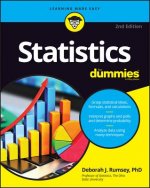
Statistics For Dummies, 2nd Edition
496 Kč -

How to Lie with Statistics
302 Kč -

Naked Statistics
456 Kč -

Theory That Would Not Die
464 Kč -
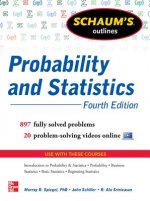
Schaum's Outline of Probability and Statistics
538 Kč -
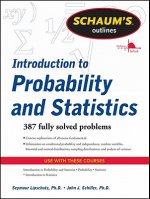
Schaum's Outline of Introduction to Probability and Statistics
599 Kč -
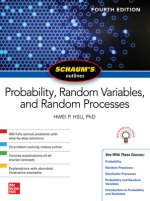
Schaum's Outline of Probability, Random Variables, and Random Processes, Fourth Edition
576 Kč -
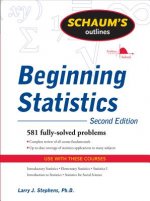
Schaum's Outline of Beginning Statistics, Second Edition
790 Kč -
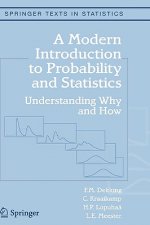
Modern Introduction to Probability and Statistics
986 Kč -
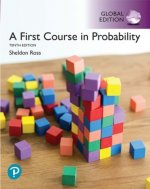
First Course in Probability, Global Edition
2147 Kč -

Manga Guide To Regression Analysis
550 Kč -
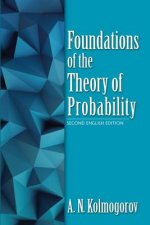
Foundations of the Theory of Probability: Second English
342 Kč -
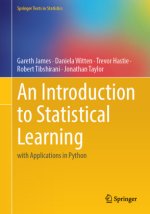
An Introduction to Statistical Learning
3276 Kč -
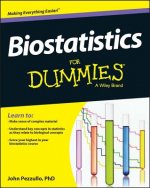
Biostatistics For Dummies
471 Kč -
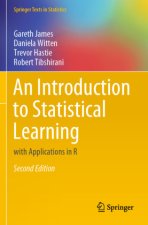
Introduction to Statistical Learning
1328 Kč -

Manga Guide To Statistics
554 Kč -
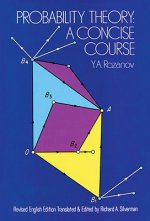
Probability Theory
223 Kč -

Pearson Edexcel International A Level Mathematics Statistics 2 Student Book
1015 Kč -
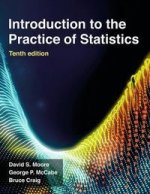
Introduction to the Practice of Statistics
2535 Kč -
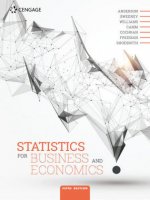
Statistics for Business and Economics
2204 Kč -
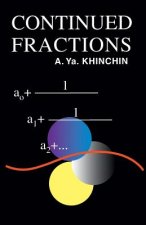
Continued Fractions
203 Kč -

Introductory Econometrics for Finance
1697 Kč -
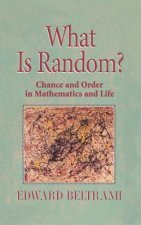
What Is Random?
436 Kč -
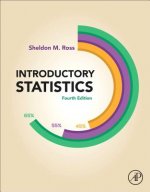
Introductory Statistics
4031 Kč -
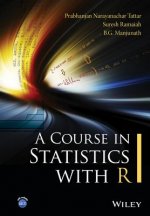
Course in Statistics with R
3324 Kč -
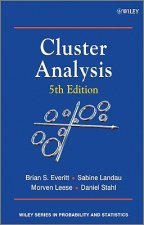
Cluster Analysis
2861 Kč -
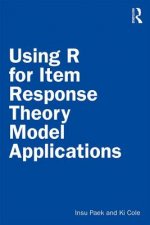
Using R for Item Response Theory Model Applications
1664 Kč -

Logic of Miracles
709 Kč -
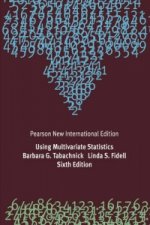
Using Multivariate Statistics
2166 Kč -
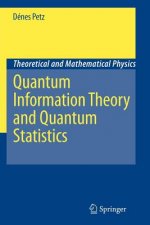
Quantum Information Theory and Quantum Statistics
1960 Kč -

Duelling Idiots and Other Probability Puzzlers
574 Kč -
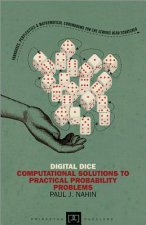
Digital Dice
528 Kč -
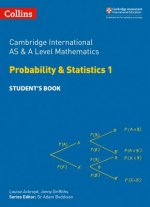
Cambridge International AS & A Level Mathematics Probability and Statistics 1 Student's Book
779 Kč -

Statistics Done Wrong
586 Kč -

Discovering Statistics Using R
2374 Kč -
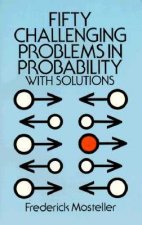
Fifty Challenging Problems in Probability with Solutions
243 Kč -
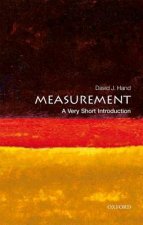
Measurement: A Very Short Introduction
282 Kč -
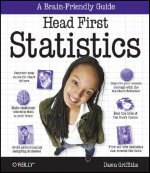
Head First Statistics
885 Kč -
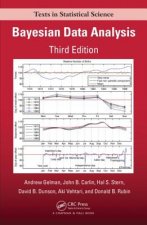
Bayesian Data Analysis
2635 Kč -
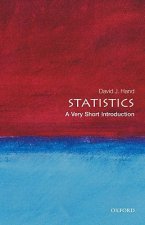
Statistics: A Very Short Introduction
249 Kč -
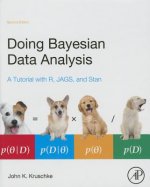
Doing Bayesian Data Analysis
2014 Kč -
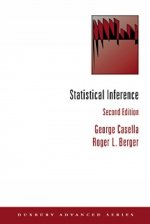
Statistical Inference
2534 Kč -
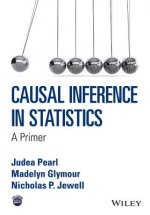
Causal Inference in Statistics - A Primer
1090 Kč -
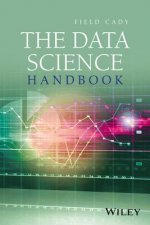
Data Science Handbook
1341 Kč -
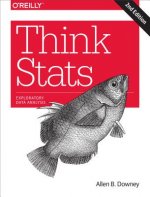
Think Stats 2e
757 Kč -

Cartoon Introduction to Statistics
562 Kč -
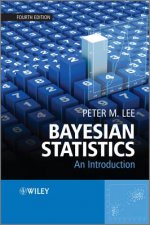
Bayesian Statistics - An Introduction 4e
2130 Kč -
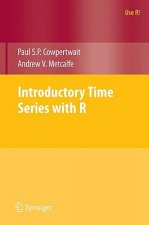
Introductory Time Series with R
1611 Kč -

Cause and Correlation in Biology
1597 Kč
Osobní odběr Praha, Brno a 12903 dalších
Copyright ©2008-24 nejlevnejsi-knihy.cz Všechna práva vyhrazenaSoukromíCookies



 Vrácení do měsíce
Vrácení do měsíce 571 999 099 (8-15.30h)
571 999 099 (8-15.30h)